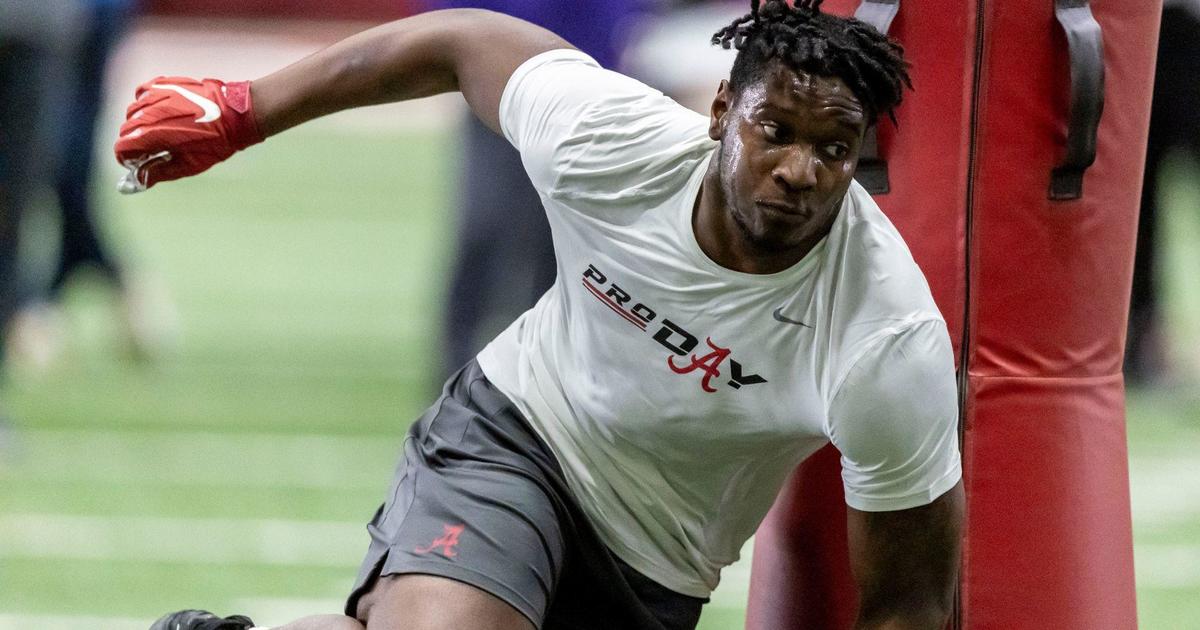Diabetes Doesn't Sideline Young Jiu-Jitsu Athlete
FREDERICK, Md. (AP) -- When 11-year-old Ryan Lackey takes part in a Brazilian Jiu-Jitsu match, his parents watch the coloring in his face, they look to make sure he's not sweating too much or if he's rubbing his eyes.
They want him to do well in his match, but more importantly they want to make sure he's OK.
Ryan has type I diabetes and these are all signs that his sugar level might be low.
He was diagnosed with diabetes in October 2008, about a year after he began Brazilian Jiu-Jitsu, a martial arts sport that focuses on grappling and ground fighting.
He also played flag football after being diagnosed and this year began youth basketball.
But Jiu-Jitsu is his main sport and he's good at it. He's ranked first in Maryland and fifth nationally in the 14 and under age group.
He and his parents, Susan and Peter Lackey, have not let his disease stop him.
"Diabetes is not an excuse not do something," Susan said.
Mike Moses, owner of Evolve Academy where Lackey trains, said, "I don't think it hurts his athletic ability at all. He never misses a beat."
Ryan said he doesn't get tired and he isn't afraid. "It truly didn't change anything," he said.
But it did change his routine. The Oakdale Middle School student gives himself insulin shots three times a day -- at breakfast, dinner and before he goes to sleep.
He checks his blood sugar anywhere from four to 10 times a day.
When he takes part in sports, he has to check it more frequently because adrenaline can make his sugar level go up.
"It would easier to control his sugar if he just slept and played video games all the time," his mother said. "But that's not him."
His parents want things to be as normal as possible for their son, but their lives changed after he was diagnosed. Now when he goes to practice they stay with him and watch. Before, like other parents, they might leave for a while to get a cup of coffee.
They watch him closely during matches. He takes part in eight or nine tournaments s a year and can have anywhere from four to 13 matches in a day. Matches usually last about four minutes.
"When we go to a tournament, we always have to keep this clock in the back of your head, we had breakfast at this time and when is he going to have lunch," his father said. "I may have to ask an official when there will be a break so we can make sure he gets his lunch."
"You're always afraid he's going to drop, that he's going to pass out," his mother said.
He's never had to stop a match because of the diabetes, but has had to pull himself out of a practice for a few minutes if his sugar gets too low.
During a tournament he usually checks his blood sugar level every two matches.
"He has to make sure he has snacks, he has to make sure he has sugar, he has to make sure his has lunch available," his mother said.
Ryan began Brazilian Jiu-Jitsu in fall 2007 when he was only 8 years old. At the time no one knew he had diabetes and he did well in the sport.
"It wasn't a hard sport to learn, it just takes time," Ryan said.
Then in summer 2008, Ryan's parents began to notice something was wrong with their son. He was exhausted, he began to have headaches, he was excessively thirsty and hungry and lost almost 10 pounds.
"It wasn't like he was sick, there was no coughing, no fever, that's when we started getting concerned," his father said.
There's a history of diabetes on his mother's side of the family. When they took him to the doctor in October, he was immediately diagnosed with type I diabetes, a disease that occurs when the pancreas doesn't produce enough insulin to properly control blood sugar levels.
This was on a Thursday and the doctors immediately sent the family to Children's Hospital in Washington. They treated him and the next day they gave the family intense training on how to cope with the disease.
"We thought it was going to be the end of a lot of things, that he wouldn't be able to continue to play sports," Peter said.
Ryan was quick to ask the doctors if he could continue participating in sports. They said he could, but that his sugar had to be at a certain level before entering a match. His blood sugar can drop several hundred points during or after a match.
They left the hospital on a Friday and the next day Ryan was playing flag football.
"He started to feel better right away, he wasn't drained, he wasn't getting headaches," his mother said. "He wanted to go back to being normal."
They talked with Moses and explained the situation to him.
"They have been phenomenal down there just wanting to understand what is going on," Peter said.
"We monitor him a little bit more, but not that much more," said Moses, who said he has heard that some UFC fighters have diabetes. "Like most kids, he may forget to take a break."
This year, Ryan began playing basketball. He's been in four games and the diabetes hasn't been an issue.
He wouldn't mind playing football.
But Jiu-Jitsu is his main sport. From February until December, he will take part in the sports, driving to Gaithersburg to practice three days a week at Evolve and then taking part in tournaments at various sites in the East Coast.
His parents are always watching him.
"I've benn less nervous than I was a year ago about him having a problem with his diabetes when he's on the mat," his father said. "We've gotten it down to where we know what to look for."
"Everything had to be relearned for me," Susan said.
The Frederick News-Post
(Copyright 2011 by The Associated Press. All Rights Reserved.)



